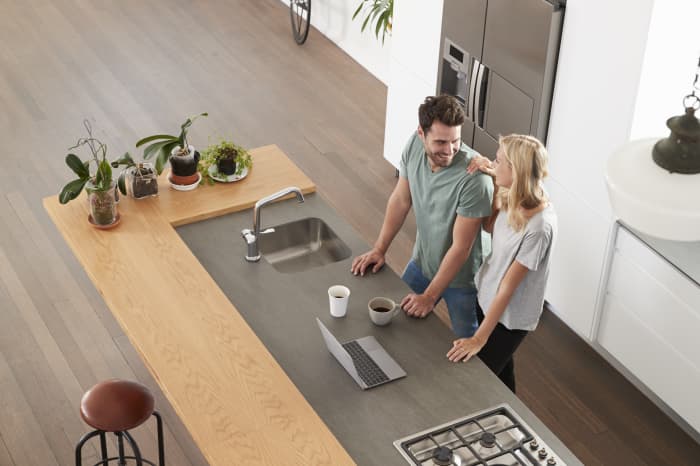Many affluent millennials are now ‘lifestyle renting’ instead of buying homes. ‘It’s the best option for now,’ some say — but is it really?

Move over white picket fence, it’s all about the doorman and a sleek gym for an increasing number of monied millennials — or at least that’s what a new study from real estate site RentCafe implies. It finds that the share of millennials who are lifestyle renters — defined as renters with above-average incomes who are using their bigger budgets to rent in amenity-rich, fancier apartments rather than buy a place — is on the rise. This year’s millennial rental applicants are making 10% more than those who moved last year, and 39% of applicants this year had individual incomes above $50,000. “There are individuals who opt to rent because they want to and not because they have to. They typically don’t want to be tied down by home ownership and mortgages. They often look for buildings with amenities such as gyms or for buildings that may be closer to where they work,” explains Michael J. Romer, managing partner of real estate law firm Romer Debbas.
But is renting a nice pad better than buying right now? Mortgage rates are still near historic lows — some 30-year rates are still near 3% and 15-year rates near 2%, as you can see here — and experts say they expect them to rise. But at the same time, housing prices rose nearly 20% year over year, which is giving some pause — though many economists and analysts we spoke to don’t see this as a bubble, and instead think prices will continue to rise, though at a more gradual pace, thanks, in part, to constrained supply issues.
The answer of whether to rent or buy depends a lot on your individual circumstances, pros say. From a high level, the rough rule of thumb is that if you don’t plan on staying in the home or area a long time (longer than say 3-5 years), renting is often the better option. This is in part because when you buy a home, you have to factor in closing costs, a down payment, property taxes and more. This rent vs. buy calculator from NerdWallet can help you figure out whether it makes sense to rent or buy now.
A significant downside of renting is the loss of real estate appreciation, which varies based on location and market conditions, but tends to average 4% over the long term, as well as tax deductions such as mortgage interest, real estate taxes and private mortgage insurance. “Simply put, real estate is an asset when you own it and merely an expense when you rent it,” says Romer.
Romer notes that when looking at the financials of buying, “you’d have to calculate the approximate mortgage interest you would have to pay and the real estate taxes for potential property. Be sure to keep state and local tax deductions (SALT) in mind and always check with your accountant first.” Home ownership also requires maintenance that, when renting, the landlord would do for you.
And, it’s not just a question of renting vs. buying: In recent years, Romer says one could argue that investing in stocks is actually more profitable than investing in real estate.
You may need to rent in order to save up to buy: “How long depends upon how much one is able to set aside. Save up to purchase that home — it’s worth it,” says Romer. And RentCafe researcher Alexandra Ciuntu says: “It comes down to the individual’s ability, financial or otherwise, to take the leap toward homeownership and one’s goals. While previous generations felt the need to cross home buying off their list and associated it with status, millennials are more prone to lifestyle renting as a viable, successful alternative. For some higher-earning renters hoping to become homeowners, lifestyle renting might not make sense, but it’s the best option for now. Renting in close proximity to an important hub can help evaluate the homebuying market and hopefully land the right opportunity to buy. For some, waiting it out in a perfect home buying hunting ground can prove a solution.”
Of course, renting versus buying is about more than just money. Renting “is of particular interest to young people who want to try different locations, property types and trendy amenities. Younger professionals are generally income rich and liquid asset poor,” says Lisa K. Lippman, a real estate broker at Brown Harris Stevens in New York. “Therefore, renting allows them to live life at a standard comparable to their income without plunking down a large down payment for a purchase.“ Adds Romer: “A prime candidate would be someone who works in an urban area and wants to live nearby, but doesn’t have the necessary liquidity to purchase. Another example would be empty nesters who have sold their suburban home and no longer want the responsibility of home ownership. For them, renting can certainly be a lifestyle.”
In the end, it’s a personal choice — and it’s not only about money, but also about how you want to live your life.




